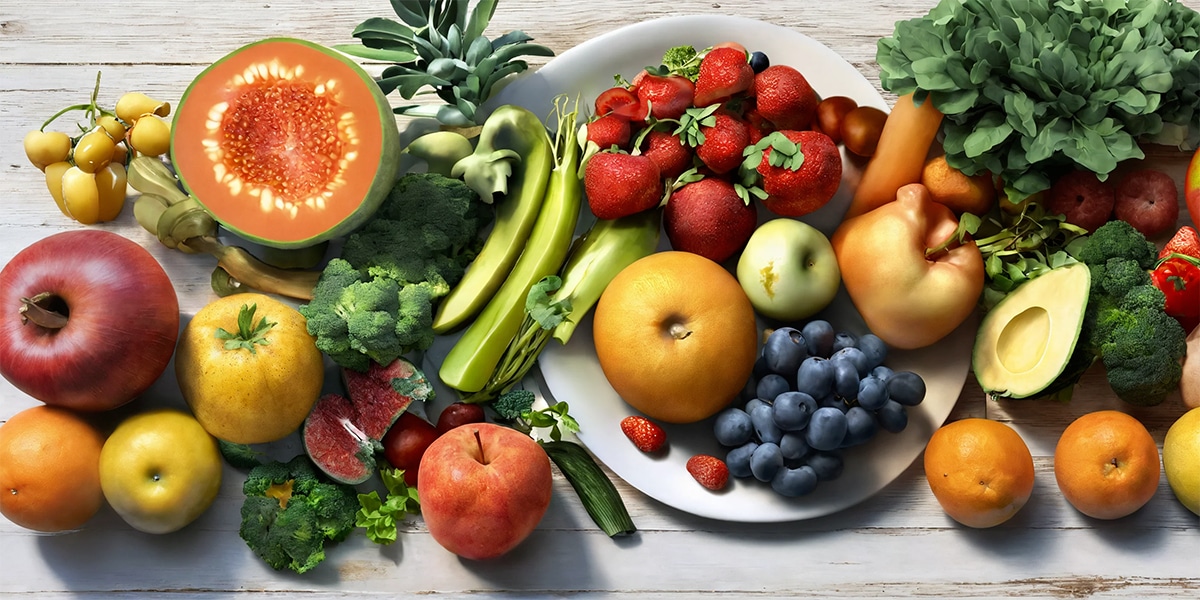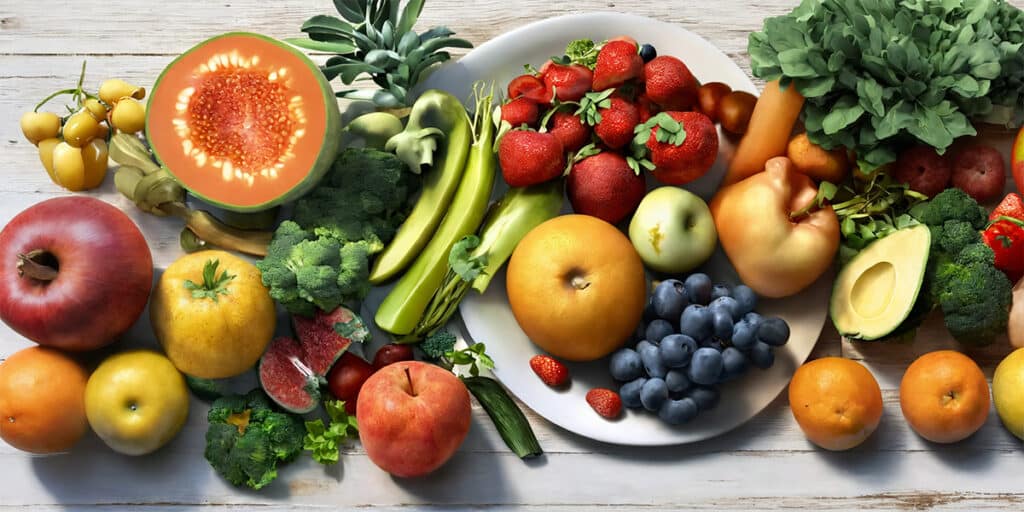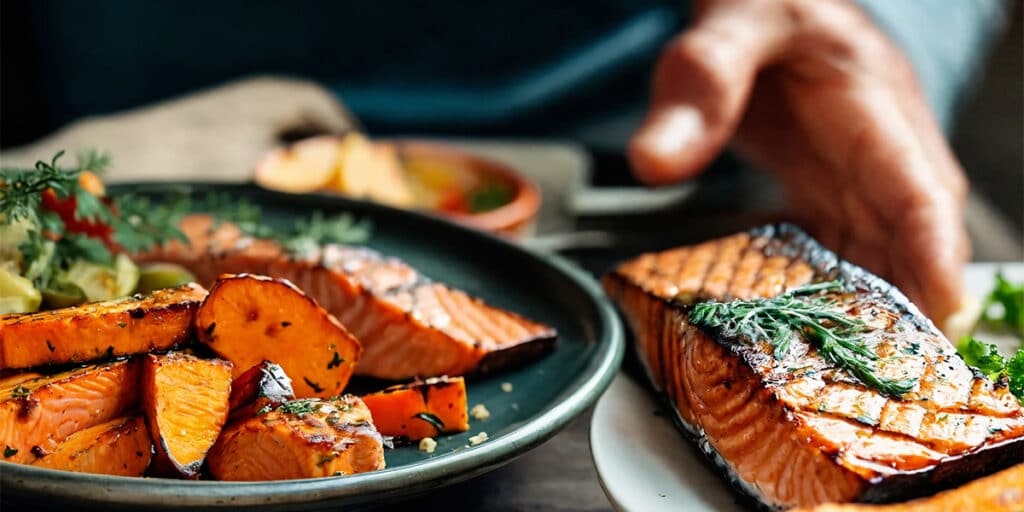- 1. The Role of Nutrition in Dental Recovery
- 2. Nutritional Tips for a Smooth Recovery
- 3. Supplements to Consider
- 4. Dietary Advice for Recovery After Dental Treatments
- 5. The Path to Healing: Nutritional Building Blocks
- 6. Soothing Foods for Dental Discomfort
- 7. Nutritional Tips for Post-Dental Procedure Care: Your FAQs Answered
Dental procedures, whether minor or major, can significantly affect your daily life, especially when it comes to eating and nutrition. Proper nutrition is not only vital for overall health but plays a crucial role in the healing process post-dental procedures.
This guide delves into the importance of nutritional care after dental work, offering insights and practical advice to ensure a swift and comfortable recovery.
The Role of Nutrition in Dental Recovery
Following a dental procedure, your body requires additional nutrients to heal. However, pain, discomfort, and dietary restrictions can make it challenging to maintain a balanced diet. It’s crucial to understand that the right nutrition can significantly enhance the healing process, reducing the risk of complications and ensuring a quicker return to normalcy.
Research highlights the importance of vitamin C in collagen synthesis, essential for gum repair, and vitamin D and calcium for bone health, especially after procedures like tooth extractions or implants. Zinc plays a critical role in wound healing, making these nutrients vital in your recovery diet.
Nutritional Tips for a Smooth Recovery
Navigating your diet post-dental surgery doesn’t have to be daunting. Here are tailored nutritional tips to aid your recovery:
Opt for Soft, Nutrient-Rich Foods: In the initial days, focus on soft foods that are easy to consume and digest. Smoothies, soups, and yogurts can be packed with fruits, vegetables, and proteins to support healing.
Stay Hydrated: Adequate fluid intake is essential. Water, herbal teas, and clear broths can help keep you hydrated without irritating the surgical site.
Avoid Hard, Sticky, or Crunchy Foods: Such foods can disrupt the healing process, dislodge blood clots, or damage dental work. Stick to soft foods that require minimal chewing effort.
Incorporate Anti-Inflammatory Foods: Foods rich in omega-3 fatty acids, such as salmon and flaxseeds, can help reduce inflammation and promote healing.
Limit Sugary and Acidic Foods: These can increase the risk of decay in unaffected teeth and irritate the mouth, slowing down the healing process.
Supplements to Consider
In the journey of recovery following dental procedures, the significance of a well-balanced diet cannot be overstated. However, there are instances where the diet alone might not suffice in providing all the necessary nutrients in the amounts required for optimal healing. This is where supplements can play a pivotal role, bridging any nutritional gaps and fostering a conducive environment for recovery. Before embarking on any supplement regimen, it’s imperative to seek guidance from your healthcare provider to ensure compatibility with your health status and avoid any adverse interactions with medications.
Vitamin C: A Keystone for Oral Regeneration
Vitamin C is renowned for its pivotal role in collagen synthesis, a critical process for gum regeneration and wound healing. Additionally, its antioxidant properties bolster the immune system, offering an added defense against infections post-dental surgery. Supplements can be particularly beneficial during recovery when your dietary intake might be limited.
Vitamin D and Calcium: Architects of Bone Integrity
Both Vitamin D and Calcium are integral for bone health, playing a crucial role in the repair and maintenance of bone tissue, which is essential after procedures like dental implants or extractions. Vitamin D facilitates calcium absorption, ensuring that the calcium you consume is effectively utilized. Given the challenges of obtaining sufficient Vitamin D solely from food, especially in limited sun exposure conditions, supplements can be a practical solution to meet your needs.
Zinc: The Wound Healing Ally
Zinc is instrumental in numerous bodily functions, including supporting a robust immune response and playing a direct role in the process of cell division and wound healing. Its efficacy in accelerating recovery times and enhancing the body’s ability to repair tissues makes it an essential supplement during the healing phase following dental work.
Dietary Advice for Recovery After Dental Treatments
Creating Your Post-Dental Procedure Meal Plan
Navigating the dietary landscape following dental procedures is crucial for ensuring a smooth and speedy recovery. The focus should be on foods that not only offer comfort and ease of consumption but also pack a nutritional punch to support the body’s healing process. Planning your meals in advance is a strategic approach that can significantly enhance your recovery experience, helping you maintain a balanced diet and steer clear of foods that might compromise your progress. Below are tailored meal ideas designed to provide optimal nutrition while catering to the needs of a recovering mouth.
Morning Nourishment: Gentle Yet Nutritious Start
Breakfast is the cornerstone of your day, providing the initial boost of nutrients needed for healing. A smoothie is an excellent choice, as it can be packed with vitamins and proteins while being gentle on your mouth. Blend leafy greens like spinach or kale, which are rich in vitamins A, C, and K, with a high-quality protein powder to support tissue repair. Add a soft fruit such as a banana for its natural sweetness, potassium, and energy-boosting carbohydrates. This combination delivers a powerful mix of nutrients in a form that’s easy to consume and digest, setting a positive tone for the day.
Lunch: Comforting and Healing
For lunch, a warm lentil soup can be both comforting and nourishing. Lentils are an excellent source of protein, essential for wound healing, and fiber, which is important for maintaining gut health during periods of reduced physical activity. Include soft-cooked vegetables such as carrots and zucchini to add a variety of vitamins and minerals without requiring strenuous chewing. Seasoning the soup with herbs like turmeric can provide anti-inflammatory benefits, enhancing the healing process. This meal offers a hearty, comforting option that’s easy on the mouth yet rich in the nutrients needed for recovery.
Dinner: Soft, Satisfying, and Nutrient-Rich
Dinner should continue to support your body’s healing needs while providing a satisfying end to the day. Mashed sweet potatoes offer a delicious base, rich in beta-carotene, vitamin C, and potassium, which are all vital for recovery. Pairing this with a protein source like grilled salmon, rich in omega-3 fatty acids, can aid in reducing inflammation and supporting immune health. For a plant-based option, tofu provides a high-quality protein alternative that’s soft and easy to eat. This meal combines ease of consumption with a nutritional profile that supports healing, ensuring your dietary needs are met as you recover.
These meal suggestions are designed to inspire a recovery diet that’s both practical and nutritious. By focusing on foods that are easy to eat and packed with the nutrients required for healing, you can effectively support your body’s recovery process while enjoying delicious and varied meals. Always remember to customize your meal plan based on personal preferences, dietary restrictions, and specific post-procedure instructions from your dental professional to ensure the best recovery experience.
| Food | Nutrient Benefits | Recommended Serving |
|---|---|---|
| Ice Cream | Provides calcium and soothing effect | 1/2 cup |
| Smoothies | Rich in vitamins, protein, and fiber | 1 cup |
| Bananas | High in potassium and vitamin C | 1 medium banana |
| Avocados | Source of healthy fats and vitamins E & C | 1/2 avocado |
| Warm Soup | Hydrating and easy to consume, protein-rich | 1-2 cups |
| Mashed Potatoes | Rich in vitamin C and potassium | 1/2 cup |
| Scrambled Eggs | High in protein and vitamins B2 & B12 | 2 eggs |
| Cottage Cheese | High in protein and calcium | 1/2 cup |
| Applesauce | Source of dietary fiber and vitamin C | 1/2 cup |
| Oatmeal | Rich in fiber, protein, and iron | 1 cup cooked |
The Path to Healing: Nutritional Building Blocks
Vitamin C: The Cornerstone of Collagen Production
Vitamin C is paramount for collagen synthesis, an essential protein that aids in the healing of gums and oral tissues. A study published in the Journal of Periodontology outlines Vitamin C’s critical role in enhancing periodontal healing and reducing the risk of periodontal diseases. Dr. Alice Martin, a dental surgeon with over 15 years of experience, emphasizes, “Patients who ensure a high intake of Vitamin C post-surgery often experience noticeably quicker healing times and fewer complications.”
Personal anecdote from James, a patient who underwent gum grafting, underscores this: “Incorporating more Vitamin C-rich foods into my diet post-surgery made a significant difference. My dentist was impressed with the speed of my recovery.”
Vitamin D and Calcium: Architects of Bone Regeneration
The synergy between Vitamin D and Calcium is essential for bone health, particularly crucial in dental implant recovery or after extractions. Vitamin D enhances calcium absorption, a process vital for bone regeneration and healing. Research in the Journal of Oral Implantology highlights that patients with adequate Vitamin D levels tend to have better outcomes in bone healing post-dental implants.
Nutritionist Emily Carter remarks, “Ensuring sufficient Vitamin D and Calcium intake post-dental surgery is foundational. It’s not just about quick recovery; it’s about building stronger bones to prevent future complications.”
Zinc: Accelerating Wound Healing
Zinc’s role in wound healing is well-documented, with its ability to support immune function and cell division. A publication in the Wound Repair and Regeneration journal illustrates that zinc supplementation can significantly reduce healing time in surgical patients. Dental health expert Dr. Rajiv Singh points out, “Zinc supplementation can be particularly beneficial for patients undergoing extensive dental surgeries, as it aids in faster tissue repair and reduces the risk of infection.”
Anecdote from Sarah, who recovered from a dental extraction, adds a personal touch: “Adding zinc supplements to my diet on my dentist’s advice was a game-changer. My healing process was smoother, and post-operative infections were not a concern.”
Integrating Nutrients into Your Diet
The importance of these nutrients in the healing process cannot be overstated. Incorporating a balanced diet rich in Vitamin C, Vitamin D, Calcium, and Zinc can significantly impact recovery outcomes. Whether through dietary adjustments or supplementation—under the guidance of healthcare professionals—patients can actively support their healing journey, turning a potentially arduous recovery into a more swift and manageable process.
Soothing Foods for Dental Discomfort
In the aftermath of dental procedures, managing discomfort and ensuring proper nutrition can be a balancing act. Thankfully, certain foods are not only gentle on sensitive areas but can also offer a soothing effect, making the recovery process both more comfortable and nutritionally sound. These foods are carefully selected to minimize discomfort while providing the body with the necessary nutrients to aid in the healing process.
Alleviating Dental Discomfort Through Thoughtful Nutrition
Cold Foods: A Numbing Embrace
Cold foods serve a dual purpose in the recovery diet. Not only are they refreshing, but they can also act as a natural analgesic, numbing the areas of discomfort. Ice cream, for instance, can be a soothing treat, offering temporary relief from pain. However, opting for varieties low in sugar can prevent additional dental issues. Cold smoothies are another excellent choice, as they can be packed with a mix of fruits, vegetables, and proteins, all while providing the cooling effect that can help reduce swelling and numb pain. Incorporating leafy greens, protein powders, and a base of almond milk or yogurt into your smoothies can turn them into nutrient-dense meals that support healing without exacerbating dental sensitivity.
Soft Fruits: Gentle Nutrition
Soft fruits like bananas and avocados are ideal for a post-dental procedure diet. Their soft texture makes them easy to consume, even when chewing is uncomfortable, and their nutritional profile supports recovery. Bananas are rich in potassium, an essential mineral for muscle and nerve function, as well as vitamin C, which aids in the healing process. Avocados, on the other hand, are a great source of healthy fats, fiber, and vitamins E and C, all contributing to healing and reducing inflammation. Mashing these fruits for an even smoother consistency can further ease consumption.
Warm Soups: Comfort in a Bowl
Warm soups can be particularly comforting during the recovery phase. They offer a way to consume a variety of vegetables and proteins in a form that’s gentle on the mouth. The warmth of the soup can soothe soreness without the risk of irritation that comes from hot foods. Soups can also be easily enriched with nutrients by incorporating bone broth as a base, which is known for its healing properties, including aiding joint recovery and reducing inflammation. Adding soft-cooked vegetables and shredded meats can enhance the nutritional value without making the dish difficult to consume. It’s important to ensure that the soup is warm, not hot, to avoid aggravating sensitive areas.
Crafting a Comfort-Driven Recovery Diet
These food options represent a strategic approach to nutrition that prioritizes both comfort and healing. By choosing foods that are soft, easily consumable, and capable of providing a soothing effect, individuals recovering from dental procedures can effectively manage discomfort while still supporting their body’s nutritional needs. Integrating these soothing foods into your post-procedure diet can significantly enhance the recovery experience, making it possible to maintain a balanced diet without compromising on comfort or nutritional value.
Recovering from a dental procedure is a delicate process that requires careful nutritional planning. By focusing on soft, nutrient-rich foods and avoiding those that can cause harm or discomfort, you can significantly enhance your recovery process. Remember, while nutrition is a key component of recovery, always follow your dental professional’s advice and consult with a nutritionist or healthcare provider to tailor your diet to your specific needs.
Nutritional Tips for Post-Dental Procedure Care: Your FAQs Answered
What should I eat immediately after a dental procedure?
Stick to soft, easy-to-consume foods like yogurt, pudding, or applesauce. Avoid hot beverages or foods in the first few hours.
Can I drink coffee after dental surgery?
It’s best to avoid coffee for the first 24-48 hours as it can dehydrate and possibly aggravate the surgical site.
Is it okay to eat ice cream after dental work?
Yes, but choose soft, plain varieties and avoid any with nuts or hard pieces. The cold can actually soothe the area.
How can I ensure I'm getting enough nutrients while on a limited diet?
Incorporate nutrient-dense smoothies, soups, and supplement with vitamins as advised by your healthcare provider.
What foods should I avoid after dental procedures?
Stay away from hard, sticky, or crunchy foods that can irritate or harm the surgical area. Also, limit sugary and acidic foods.
Can spicy food affect dental recovery?
Yes, spicy foods can irritate the wound site. It’s best to avoid them until fully healed.
Is dairy good for dental recovery?
Dairy products can be beneficial for their calcium content but opt for soft options like yogurt or cottage cheese.
How long should I follow a soft food diet?
This can vary depending on the procedure and individual healing rate, but generally, a soft food diet is recommended for at least a week post-procedure.
Can I eat bread after dental surgery?
Soft breads may be okay, but avoid crusty or hard bread that requires significant chewing until your recovery progresses.
How do I manage hunger on a soft food diet?
Eat small, frequent meals throughout the day and focus on protein-rich foods like eggs, soft dairy products, and smoothies to feel fuller longer.
References
- “Pre- and Post-Surgical Nutrition for Preservation of Muscle Mass, Strength, and Functionality Following Orthopedic Surgery” by Katie R. Hirsch, Robert R. Wolfe, and Arny A. Ferrando. This review discusses the importance of nutrition in surgical recovery programs.
- “Surgical Nutrition and Post-Surgical Management” by Jessica Schucht, W. Aaron Marshall, Christian Brown, Nicholas Caminiti & Martin Rosenthal. This chapter reviews current surgical nutrition and post-surgical management paradigms.
- “Importance of Nutrition for the Success of Dental Implants“. This article discusses how a diet rich in essential nutrients such as calcium, vitamin D, and protein can significantly aid osseointegration, promoting quicker healing and stronger implant-bone bonds.
- “Nutrition Status Optimization for Improved Perioperative Outcomes” by David G. A. Williams & Paul E. Wischmeyer. This review addresses the critical role of nutrition therapy in perioperative optimization to improve surgical outcomes.
- “Effectiveness of intensive perioperative nutrition therapy among adults undergoing gastrointestinal and oncological surgery in a public hospital: study protocol for a pragmatic randomized control trial” by A’ishah Zafirah Abdul A’zim, Zalina Abu Zaid, Barakatun Nisak Mohd Yusof, Mohd Faisal Jabar & Aainaa Syarfa Mohd Shahar. This study discusses the importance of intensive nutrition therapy in the perioperative period, especially for patients undergoing gastrointestinal and oncological surgery.








